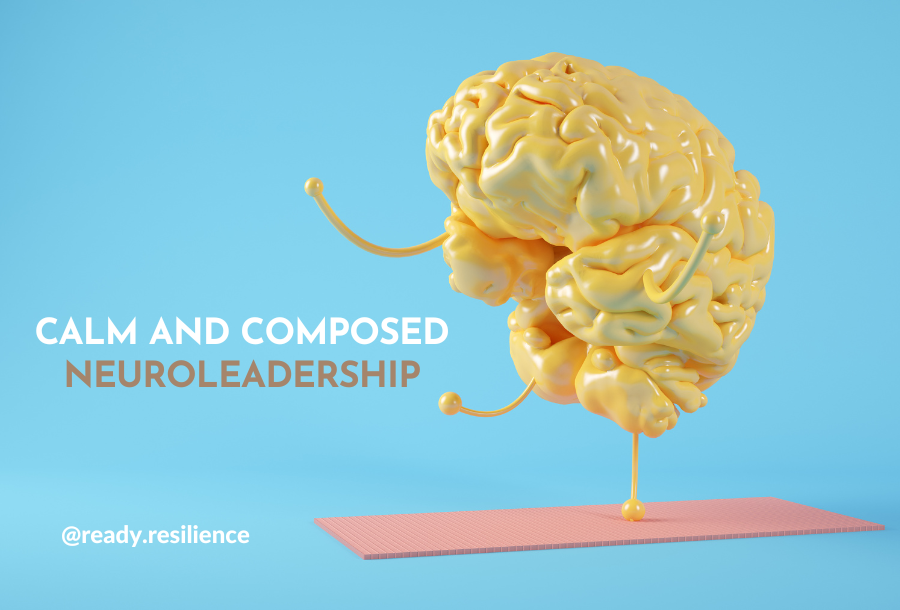
GUEST POST BY Wendy Jenkins OAM, READY RESILIENCE
Ready Resilience helps organisations thrive during times of change and challenge, using practical neuroscience-based resilience tools that have been proven to offer in-the-moment solutions and long-lasting results.
Unleashing the Power of Neuroleadership: Calm and Composed
Your team is looking for a leader that can stay calm and focused during the midst of change or challenge.
How composed are you as a leader?
Having the capacity to stay calm and collected is not only a desirable characteristic, but a necessity in today’s workplaces, due to the continual demands on leadership and the seemingly endless pressures.
Neuroscience provides important insights about the workings of this mental state, which in turn helps you as a leader to understand how to cultivate and harness calmness for peak performance.
If you are intrigued by how our brains work and influence behaviour, then you have mostly likely heard of concepts such as the fight-or-flight stress response to challenging situations.
The amygdala is a region of your brain responsible for processing emotions like fear and stress, leading to these types of reactions.
Neuroleaders can train their amygdala to be less reactive and more calm through emotional management strategies and mindfulness practices.
The prefrontal cortex’s function in self-control is another fact known to neuroleaders.
This region, known for its involvement in executive functions such as decision-making and impulse control, plays a crucial role in regulating emotions.
By strengthening the connections within the prefrontal cortex, through adopting a mindset of resilience, the activity of the amygdala can be dampened.
This can result in leaders improving their capacity to remain composed in high-pressure situations, and make better decisions when faced with obstacles or setbacks.
Our brain’s reward system, governed by neurotransmitters like dopamine and serotonin, also plays a significant role in promoting feelings of wellbeing and relaxation.
As a leader, you can recharge and keep your emotional equilibrium despite the demands of leadership by engaging in activities that stimulate this reward system, such as exercise you enjoy, socialising, and pursuing hobbies.
Harnessing the power of neuroplasticity, the brain’s capacity to reshape neural circuitry, has the potential to cultivate further balance and emotional stability.
Training your brain to respond more calmly and adaptively to stressful situations empowers the neuroleader to navigate challenges with greater ease and resilience.
ABOUT THE AUTHOR
Wendy Jenkins OAM is the founder of Ready Resilience, Co-Founder of the Lungitude Foundation, Speaker and Lung Transplant Survivor. Ready Resilience helps organisations thrive during times of change and challenge, using practical neuroscience-based resilience tools that have been proven to offer in-the-moment solutions and long-lasting results. Having been told she had two years to live over seventeen years ago, Wendy is driven to help people transform their perspective on challenges in life. To find out more visit www.readyresilience.com.


